News

Interview with Jérémie Périn, director of "Mars Express".
Nearly 7 years after the " Lastman " series, Jérémie Périn (class of 2000) reunites with co-writer Laurent Sarfati for a cyberpunk sci-fi thriller set in the year 2220.
Aline Ruby, a stubborn private detective, and Carlos Rivera, an android replica of her partner who died five years ago, embark on a race against time across Mars. They must find Jun Chow, a simple cybernetics student on the run, before the mercenary assassins on her trail kill her.
The film opens in theaters today, and Jérémie Périn took the opportunity to answer a few questions about the genesis of the project.
How did the idea for this scenario come about?
From the outset, my desire has been topropose works that are born of animation, that are not adaptations of comics, books or video games.
I find that animation is very dependent on adaptations , particularly comic book adaptations. That's why Laurent Sarfati, the film's co-writer, and I decided towrite an original screenplay.
We asked ourselves what kind of films were missing from the current cinema landscape, and we quickly realized that there were no credible science-fiction films.
SF is still there, but it's represented by films like "Star Wars" or superhero movies that lean more towards fantasy, magical sf. We wanted to return to something more pragmatic.
We also realized that the private detective film, film noir, was a genre that didn't really exist anymore. We blended these two genres and from there, we unwound the thread to arrive at this idea of a detective on Mars.
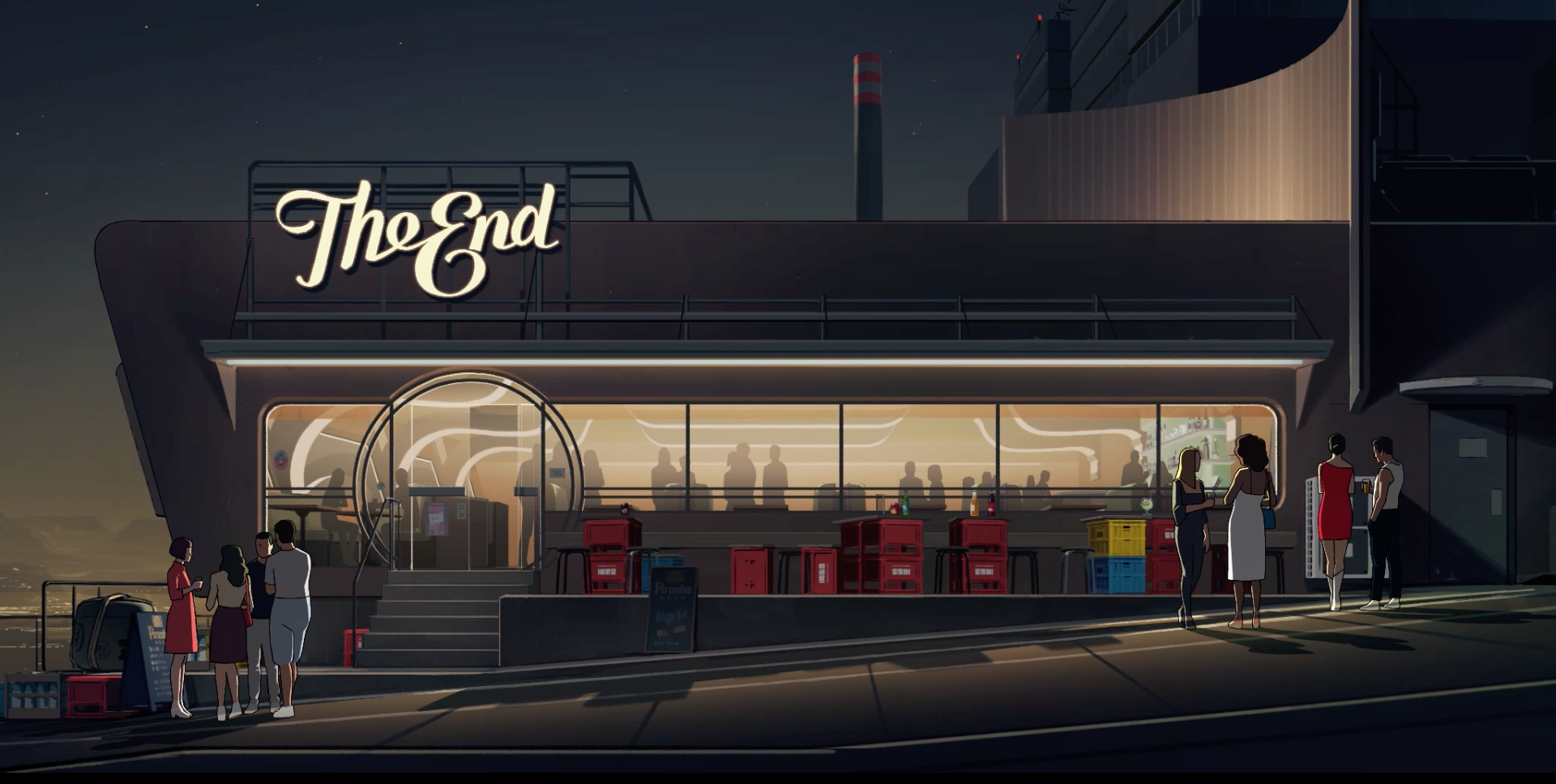
"Mars Express
How does your collaboration work with Laurent Sarfati (script) and Michael Robert (art direction), with whom you've worked as a trio on almost all your projects?
We work all three of us a little in turn.
Laurent and I start with words. Generally, one of us comes up with an idea and becomes the driving force behind the project. After that, we talk a lot together, one or the other grabbing ideas on the fly to enrich and contradict them, until we come up with the beginnings of a pitch, which is still a little fragile but which interests us and allows us to get down to writing.
During this first writing phase, we work with a large corkboard, like in films or detective series, on which we stick lots of post-it notes with separate ideas, which we then connect with red threads as in an investigation.
Then we start structuring the film in three acts, moving ideas around within them, to see how the film balances out, what its flaws are, what structural problems there might be. This first screenplay format is quite acrid; there's no flesh or dialogue yet, just a series of actions.
Once the script has been approved by the producer, we startthinking about the aesthetics of the film, its design, the faces of the characters, the sets... This is where Michael comes in. He's essentially in charge of set design, and sometimes vehicle design too. His role is halfway between cinematographer and set designer.
For my part, I do a lot of character work and storyboarding, which is yet another step.
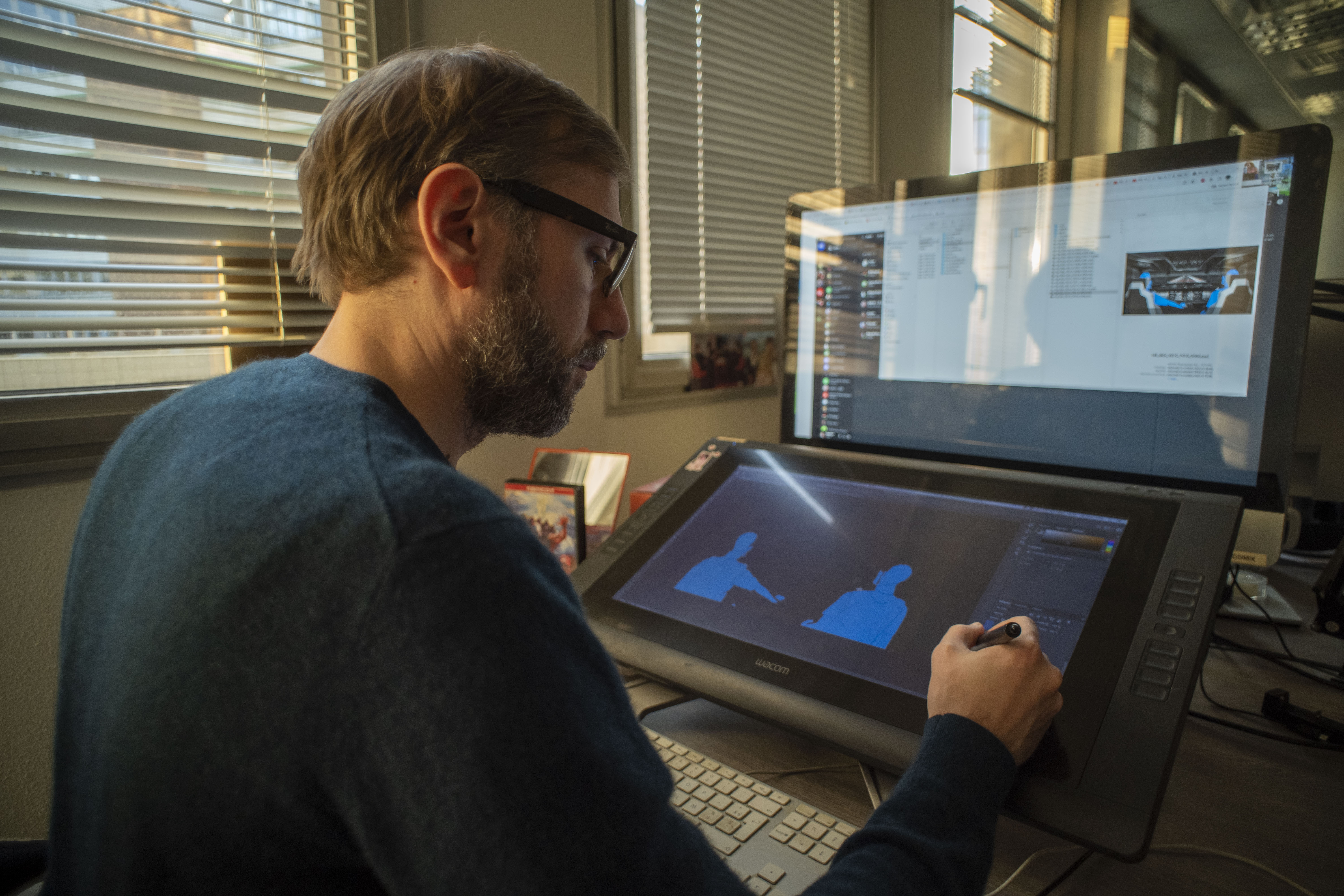
Jémémie Périn ©Alex Pilot
"Mars Express" tackles some very topical issues (AI, Elon Musk...) but how has reality influenced the script?
To try and create a tangible futuristic world, you have to start from what exists today and imagine how things might evolve.
We pull the thread of reality and, if we're not too far off the mark, current events will influence the writing. Even if the action takes place 200 years from now.
That's kind of what happened and what we were looking for. We don't talk directly about Elon Musk - he's not named in the film - but we wrote the script at a time when people like him and Jeff Bezos were talking about leaving Earth to live on Mars or in space stations. Laurent and I laughed about it, and we drew on these fantasies, and all the problems they entailed, to create the city of Noctis.
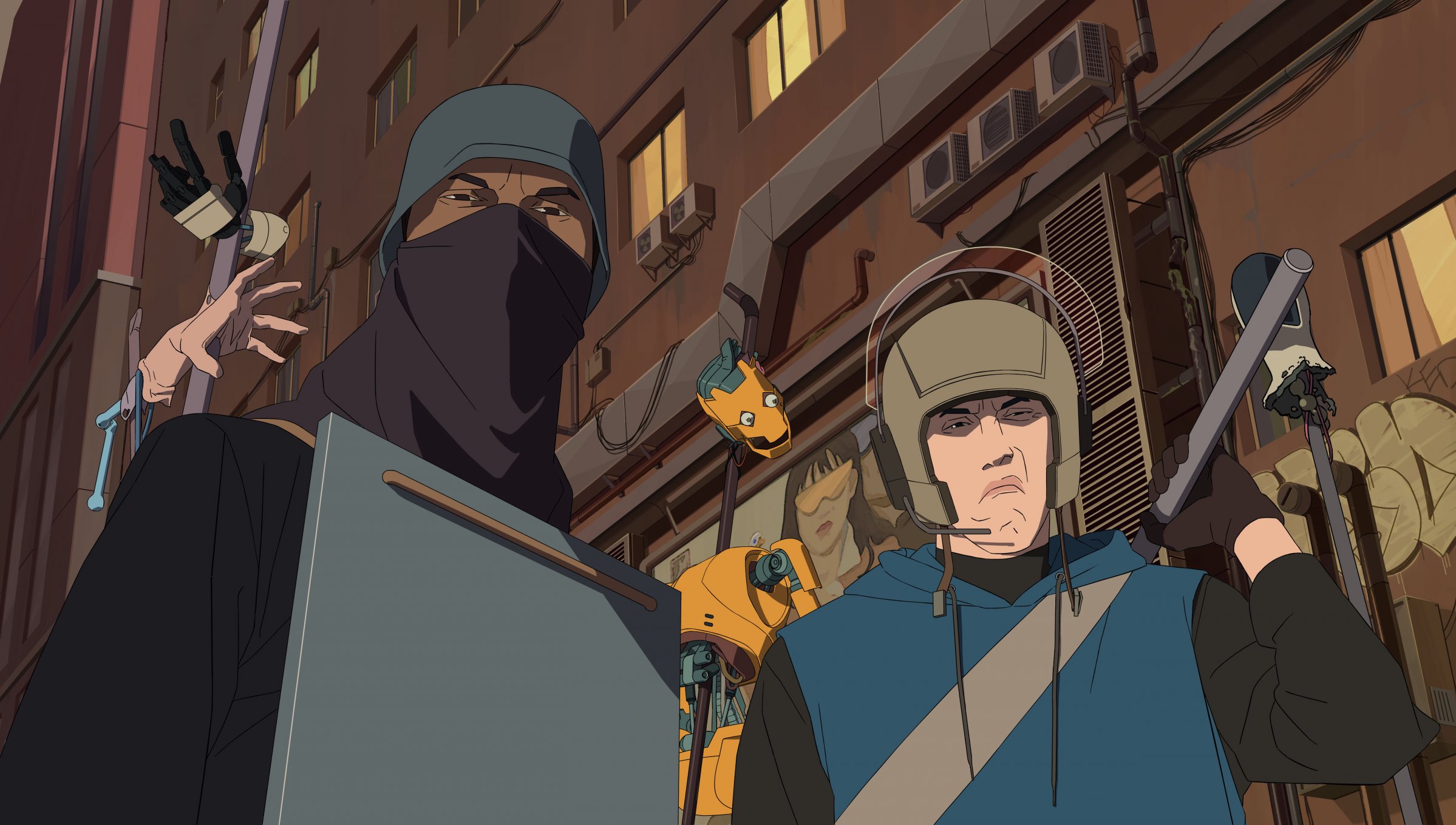
"Mars Express
What were your script and graphic references for the film?
We did a lot of research into film noir and political thrillers. These are the two genres that Laurent and I revisited and analyzed the most from a script point of view.
Of course, we were also influenced by SF, but we let everything we knew flow through us, without trying to make any particular references or winks.
On the other hand, we did want to analyze the structure of film noirs such as "En quatrième vitesse", "Chinatown", "Qui veut la peau de Roger Rabbit", "Le Privé", "Les Trois jours du Condor" and "Conversations secrètes" to help us write the script.
From agraphic point of view, I don't really think in terms of references anymore. It's something I used to do a lot in the early days, like any young designer. I had this anxiety about finding my own style, and I'd go out of my way to try not to resemble such and such a well-known cartoonist.
That's something I gave up a long time ago. Now I just draw as best I can and that's that!
But my graphic style didn't come out of nowhere, it's the result of various influences. I thinkit's part of a trend in Japanese animation such as Akira, which is itself influenced by Métal Hurlant.
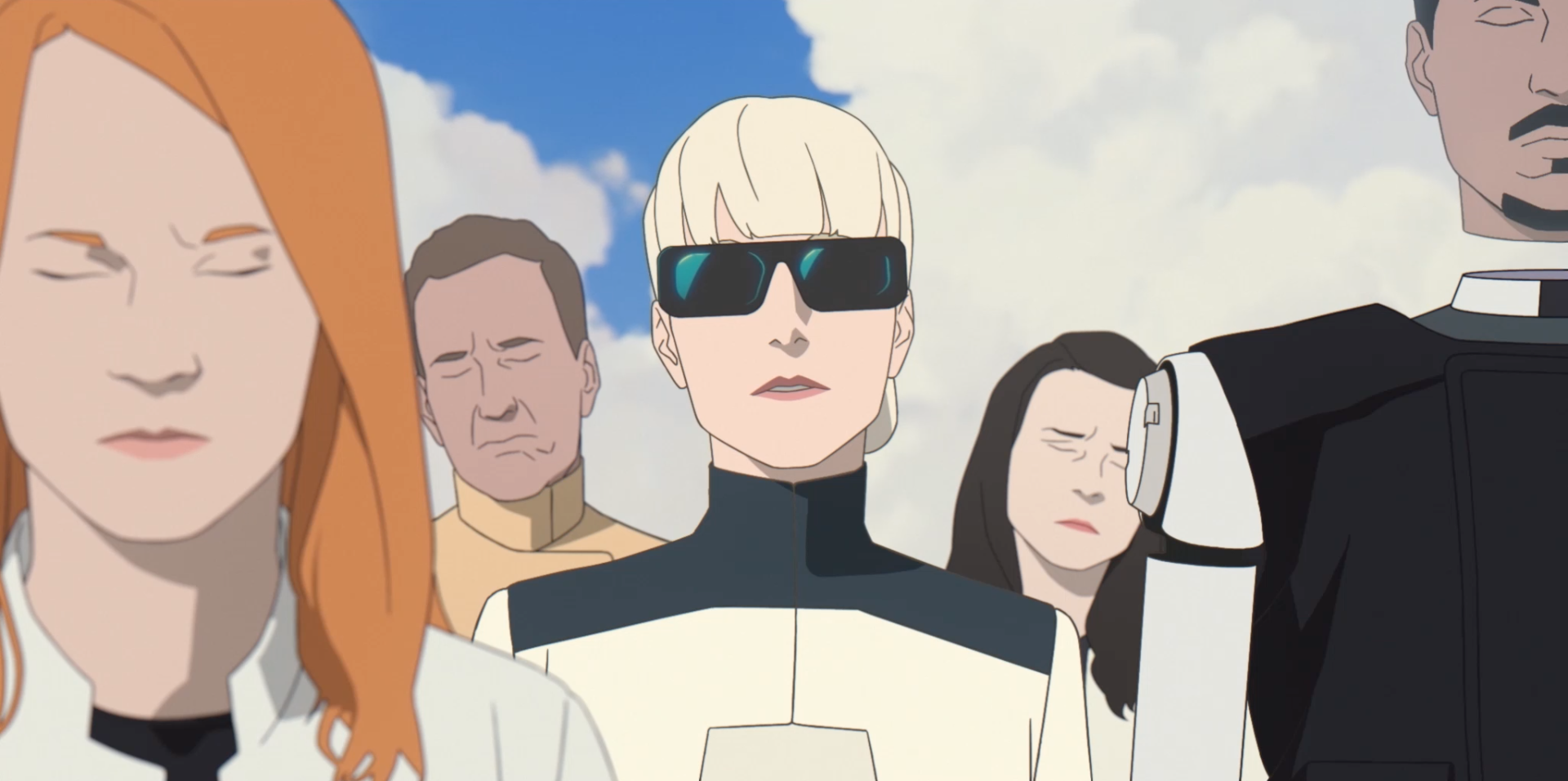
"Mars Express
"Mars Express" premiered at Cannes and was selected in official competition at Annecy. Is this your crowning achievement?
I didn't really believe in Cannes. It was more a desire on the part of a producer or distributor, to be able to open the film up to a wider audience beyond animation.
I finished the film very shortly before Cannes. I'd spent 5 and a half years on the film, so I was completely in another world, and all of a sudden I was teleported to Cannes. I didn't quite realize what that meant, but it was a good experience.
With the Annecy Festival, it's like being at home, it's very pleasant, very simple. The spectators love the animation, and we feel really supported.
The film has really been warmly welcomed by the public, which is a great pleasure, because we know that it's a critical and pointed look at animation , but it's also an "acquired" public. You can't rely on these screenings to know whether the film will do well later on.
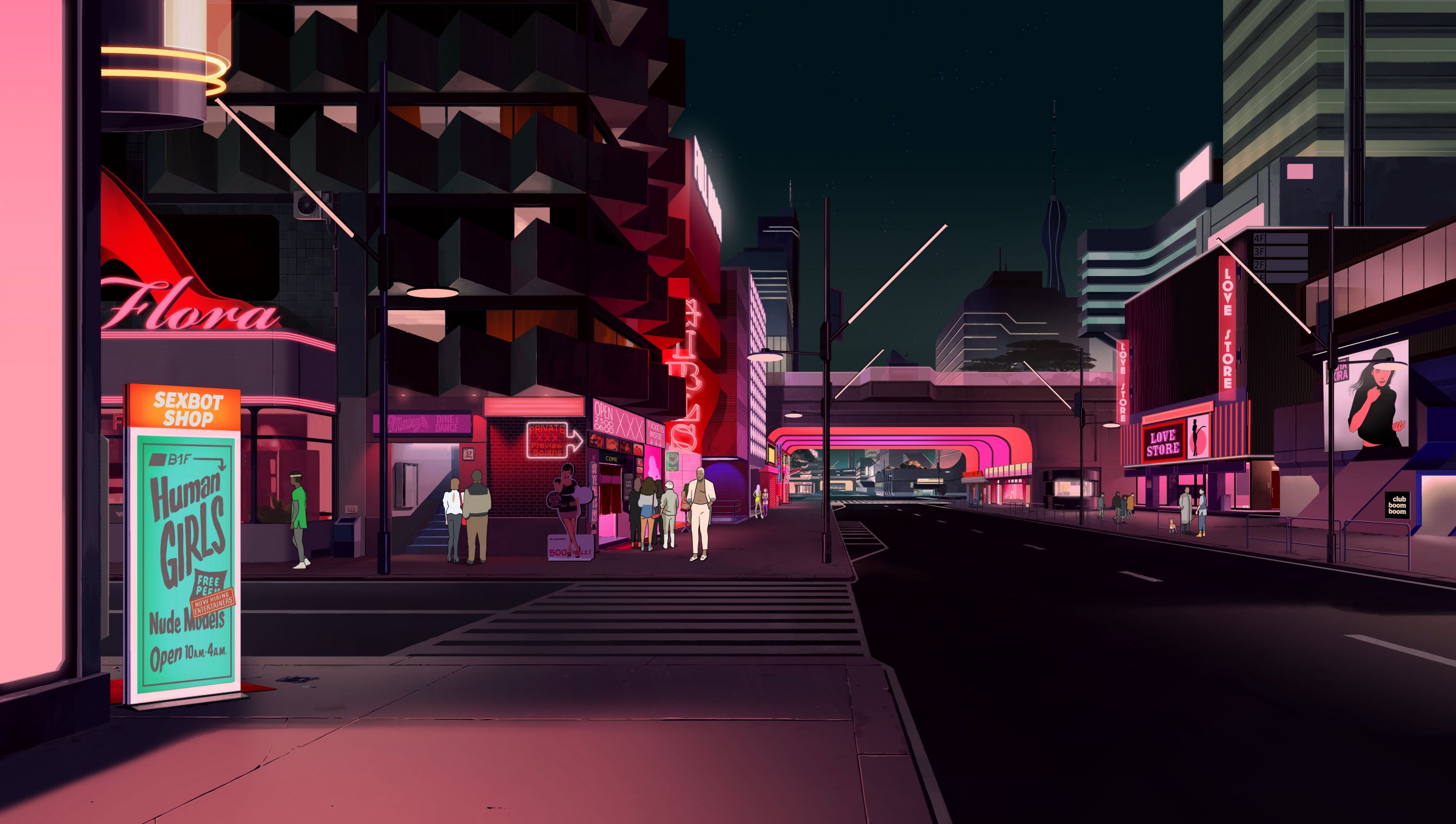
"Mars Express
Many of the school's alumni worked on the film. Was this a conscious decision on your part?
I tend not to pay too much attention to the qualifications of the people I work with. I look at demo tapes rather than CVs. I also recruit my teams on the advice of others.
It regularly happens that people I meet and whose work I like come from GOBELINS, and indeed there are a lot of animators and set designers who come from GOBELINS in the team. It's normal, it's a good school, through which many people in the industry have passed.
What do you hope to achieve with your next project?
I've got a lead I've only just started thinking about, but I've already taken Laurent on board.
We're not in the writing phase yet. With the promo, I've spent almost two months doing interviews and previews all over France and elsewhere.
We haven't had time to see each other yet, but I'm nearing the end and we'll be able to get back to work and maybe take a vacation!
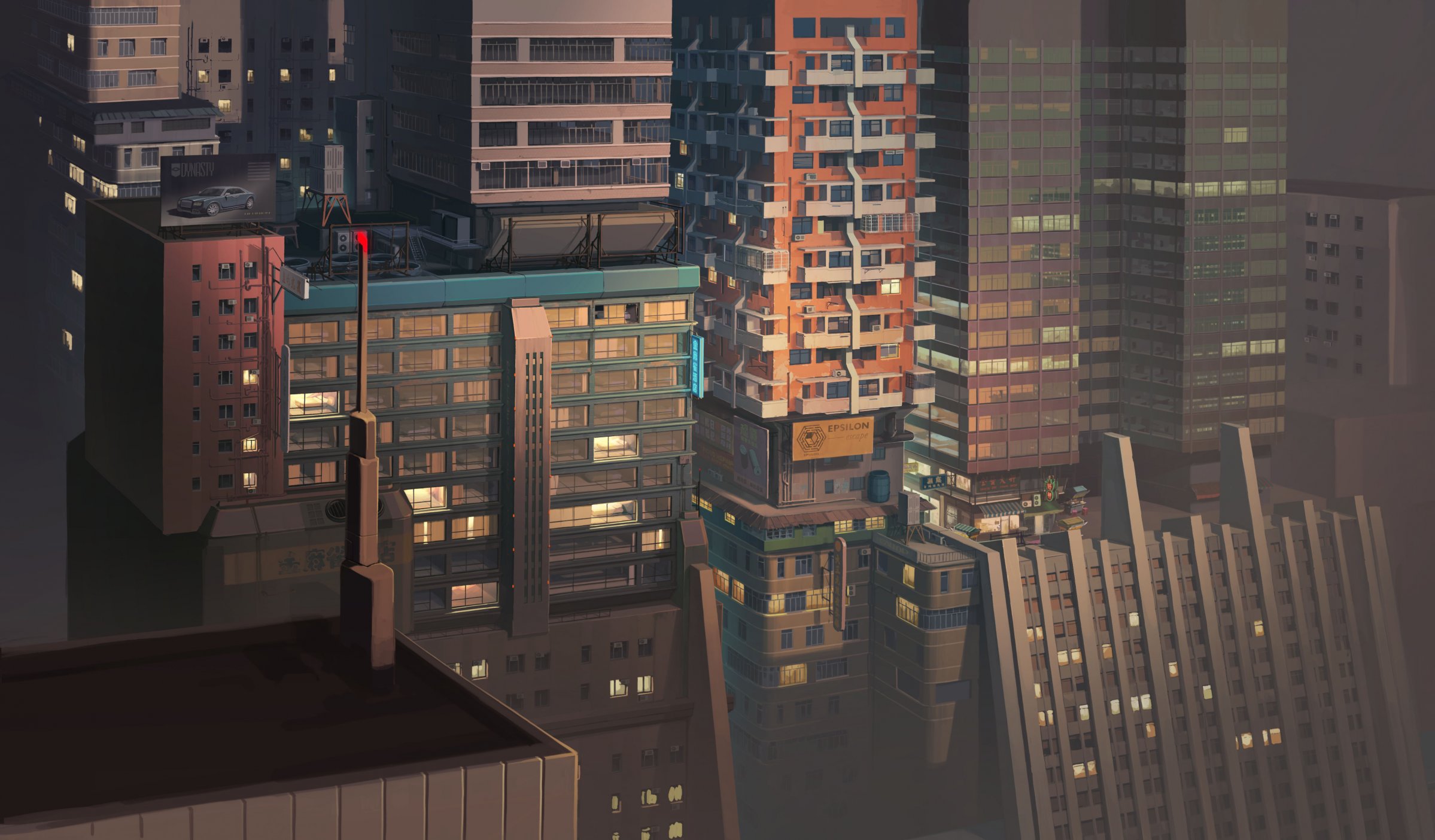
"Mars Express
What advice would you give our young animation graduates?
To become a director, I think you need to broaden your skills as much as possible , by working on lots of different things (storyboarding, animation, set design...), so that you're familiar with all the trades involved in animation, and continue to work on your own projects.
It's better to work on short formats that you can control, and you shouldn't hesitate to show them to your friends and family. I didn't dare show my work out of shyness. There's no point in keeping to yourself, you have to show your work to get feedback. That's how you can get things moving and gain the trust of producers or studio heads.
Interview by Sophie Jean
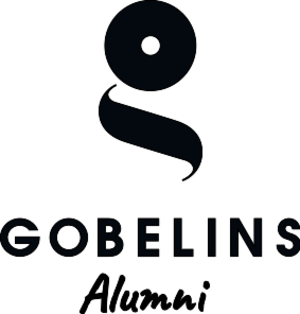








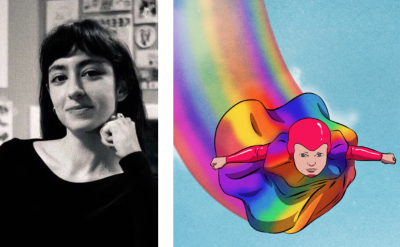



No comment
Log in to post comment. Log in.